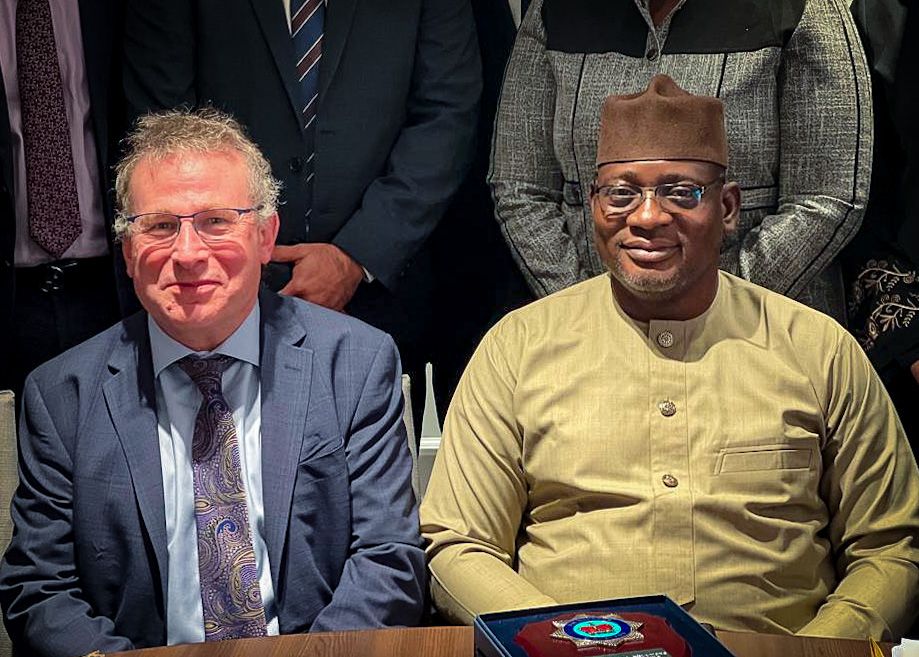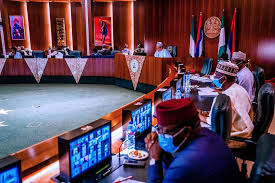News
Nigeria didn’t endorse OECD minimum Corporate Tax Agreement in best interest – FIRS

Nigeria’s cautious approach to the endorsement of the Organization for Economic Cooperation and Development (OECD)/G20 Inclusive Framework two-pillar solution to the taxation of the digital economy is in the best interest of the country, and to ensure that Nigeria does not lose out on potential revenue from the digital economy.
This was explained in a statement issued to the press by the Executive Chairman of the Federal Inland Revenue Service (FIRS), Muhammad Nami, on Monday.
Explaining in his statement, why the agreement is unfair to Nigeria and the developing countries in general, Muhammad Nami stated that the country, having reviewed the conditions of the agreement had concerns over the impact that the signing of the agreement would have on the country’s tax system and tax revenue generation.
“There are serious concerns on how the rules would compound the issues in our tax system. For instance, to be able to tax any digital sale or any multinational enterprise (MNEs), that company or enterprise must have an annual global turnover of €20 billion and a global profitability of 10%. That is a concern. This is because most MNEs that operate in our country do not meet such criteria and we would not be able to tax them.
“Secondly, the €20 billion global annual turnover in question is not just for one accounting year, but it is that the enterprise must make €20 billion revenue and 10% profitability in average for four consecutive years, otherwise that enterprise will never pay tax in our country, but in the country where the enterprise comes from, or its country of residence,” the statement read.
Thirdly he noted that for Nigeria to subject a Multinational Enterprise to tax under the rule, the entity must have generated at least €1 million turnover from Nigeria within a year.
Mr. Muhammad Nami stated that this is an unfair position especially to domestic companies which, with a minimum of above N25 million (that is about €57,000) turnover, are subject to companies income tax in Nigeria. He added that this rule will take-off so many Multinational Enterprises from the scope of those that are currently paying taxes to Nigeria. In other words, even the MNEs that are currently paying taxes in Nigeria would cease to pay taxes to us because of this rule.
Fourthly, on the issue of dispute resolutions under the Two-Pillar Solution, the FIRS Executive Chairman explained that the rules were such that in the event of a dispute between Nigeria and a Multinational Enterprise, Nigeria would be subject to an international arbitration panel as against Nigeria’s own justice system.
“It would be subject to international arbitration and not Nigeria’s judicial system and laws—even where the income is directly related to a Nigerian member of an MNE group, which is ordinarily subject to tax in Nigeria on its worldwide income and subject to the laws of Nigeria. We are concerned about getting a fair deal from such process. More so, such a dispute resolution process with a Multinational Enterprise, in an international arbitration panel outside the country, would lead to heavy expenses on legal services, traveling and other incidental costs.
“Nigeria would spend more; even beyond the tax yield from such cases,” the statement read.
On the issue of Nigeria loosing significant revenue if it fails to sign into the OECD Inclusive Framework rules for the taxation of the digital economy, the FIRS Executive Chairman noted that this was not a problem as the country had already put forward four ongoing solutions to the challenge of taxation of the digital economy.
“One, we have made it a point of practice to annually amend our tax laws to reflect the current global realities, it was courtesy of these reviews that we developed the Significant Economic Presence (SEP) rule, through the Finance Act of 2019 and 2020. The SEP rules set threshold for Multinational Enterprises, without physical presence in Nigeria, for registration and payment of taxes to the country.
“Two, we have deployed technology in order for us to bring digital transactions to the tax net. Coupled with the Significant Economic Presence rule, we have started seeing the impact of the technology we have deployed; companies like Twitter, Facebook, Netflix, LinkedIn, among others who have no physical presence in Nigeria and that were hitherto not paying taxes have now registered for tax purposes and are paying taxes accordingly. A positive to this is that we surpassed our target in the year 2021, despite the challenge posed to the global economy, including our own economy, by the Covid-19 pandemic.
“The third initiative is the Data-4-Tax Initiative, a blockchain technology which FIRS is jointly developing with the Internal Revenue Service of the 36 states and that of the FCT, under the auspices of the Joint Tax Board. With this project we are confident that we are going to have a seamless view and access to all economic activities of individuals and corporate bodies in Nigeria going forward, including money spent on digital commerce.
“The fourth is that we have set up a specialised office, the Non-Resident Persons Tax Office, to manage the taxation of non-resident persons and cross-border transactions, including all tax treaty operational issues and income derived from Nigeria by non-resident individuals and companies,” the statement read.
The Executive Chairman, FIRS appreciated members of the Nigerian public who had raised concerns at various occasions over Nigeria’s decision not to endorse the Two-Pillar solution, stating that their concerns came from a place of genuine passion and patriotism, anchored on seeking a better Nigeria.
“The concerns over Nigeria’s decision not to endorse the agreement are well-understood by us. We know that these questions come from a place of genuine concern and passion for a better Nigeria. We appreciate your patriotism,” Mr Nami said.


























